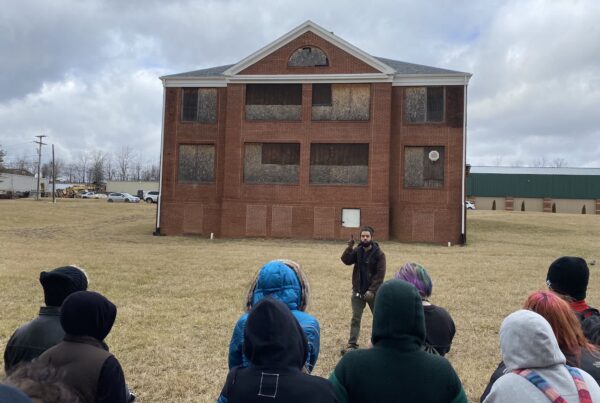by Chris Wolf, Day School Lead
Our vision of regenerative culture at Springhouse is grounded in life-giving practices. One of these cultural ways is mentoring. Remarkable things are possible with active listening, deepening questions, loving presence and the commitment it takes to show up day after day. In a relatively small learning community like ours there’s an intimacy that’s available and the possibility for deep relationship in which individuals can be truly seen and known. Learners might be mentored by all the staff in different ways at different times, but their mentor also holds a special place.

At the beginning of every year learners submit their choices for a mentor. This year we introduced the mentor selection by describing the role of mentor. To give new community members a sense for each staff mentor, one pair or trio at a time, we had a few returning learners stand in the center of our circle with their mentor and share reflections and meaningful memories: the importance of having an adult take genuine interest, show up at times of difficulty, share joy and enthusiasm. There was appreciation for being both supported and challenged. There were tears and laughter and lots of mutual gratitude.

Developmentally, the mentor serves an essential role. Many parents experience a change as a young person enters their teenage years. Looking at Bill Plotkin’s Eco-Centric Wheel of Human Development, we can understand this as a natural consequence of the center of gravity moving from the family to peer group, as the child enters adolescence. The mentor can provide guidance and perspective at a time when teens are often pushing their parents away in an effort to individuate.

In our weekly schedule we only have one hour set aside for small group mentoring, so a lot of mentoring happens in the in-between times – a moment in a class, having lunch together, connecting while dancing, checking-in while transitioning from one thing to another. It’s one of the many reasons we are grateful to be back to learning in-person. There’s something that happens for both mentor and mentee when the relationship is marked in ritual as we do. It calls us to a higher standard and helps us align with who we really want to be. That kind of relational accountability, grounded in love, contributes powerfully to a regenerative culture and a world in which I want to live.
~ Chris Wolf, Day School Lead


